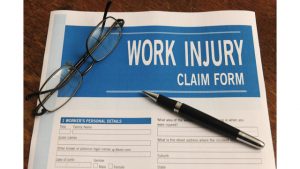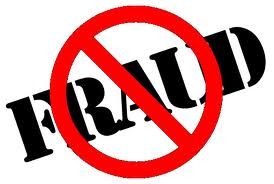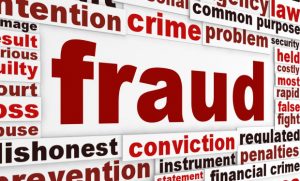Fighting Fraud with Special Investigation Units
Fraudulent workers’ compensation claims are estimated to cost employers several billion dollars annually. Ranging from employees squeezing a few extra days off work to completely fabricated injuries, fraudulent claims can increase your premium costs and negatively influence your bottom line. To reduce costs associated with fraudulent claims, it is important you know how to detect signs of fraudulent activity. While you may not be an expert at fraud detection, there are resources you can turn to when you have reason to doubt the legitimacy of a claim. Special Investigation Units

Many insurers have Special Investigation Units (SIU) that are experienced in exposing fraud. Insurers recognize that while the average employer may be able to recognize some signs of a possible fraudulent claim, they may not have the resources or training to successfully investigate the situation. When you suspect the legitimacy of a claim, an SIU can investigate, drawing on a wealth of experience and resources to discover and document any fraudulent activity that has occurred. While large insurers often employ their own in-house SIUs, many smaller insurers use groups like the National Insurance Crime Bureau (NICB), whose purpose is to identify and stop fraudulent insurance activity, as their SIU. Discovering Fraud While SIUs are always on the lookout for fraudulent activity, tips from employers are very important and can turn them on to potential cases of fraud that otherwise might have been missed. It is important that you keep an eye out for signs of fraud and alert your insurer’s SIU when you find them. The following may be a red flag for fraudulent activity:

- The injury is not reported promptly
- The injury does not fit with the typical duties performed by the employee
- The employee’s account of injury differs from witness accounts
- There are no witnesses to the injury
- Medical treatment seems excessive or lengthy for the type of injury
- Employee regularly misses medical appointments
Do Your Part to Eliminate Fraud

While SIUs are there to help, not everything can be left up to them. It is important that you take proactive measures to eliminate fraudulent activity before it requires the attention of an SIU. Strong workplace safety programs make it harder for dishonest employees to fabricate workplace injuries. Also, set strict injury reporting guidelines so you can monitor the claim from the onset. Finally, whether it is discovered by you or by an SIU, vigorously prosecute all fraud-related cases. It is important to show that your organization will not tolerate any abuse of the workers’ compensation system. Types of Fraud

An employee commits fraud by knowingly and intentionally receiving wages while collecting total disability benefits or receiving partial disability benefits in excess of the amount permitted while receiving wages. One thing to keep in mind is that employees are not the only ones subject to prosecution for fraud. An employer commits fraud by understating payroll or misclassifying employee job codes in order to reduce premiums, thus making it difficult for the honest employer to compete in the marketplace. Medical providers and attorneys may also engage in fraudulent activities by overbilling and improper coding for services rendered.Reporting Fraud Anyone who commits fraud may be subject to civil or criminal penalties. Reports of workers’ compensation fraud should be directed to the Office of the Attorney General by either calling 717-787-0272 or visiting their web site (www.attorneygeneral.gov) for access to an online complaint form. If you have additional questions regarding fraud detection, investigation or reporting, you can contact your Loomis Company representative for further assistance.

If you have additional questions or need assistance, please contact: Diane L. Cameron, Director of Claims Office (610)374-4040 ext. 2318 Mobile (610)413-3191
The Work Comp Insights is not intended to be exhaustive nor should any discussion or opinions be construed as legal advice. Readers should contact legal counsel or an insurance professional for appropriate advice. © 2011 Zywave Inc. All rights reserved.
